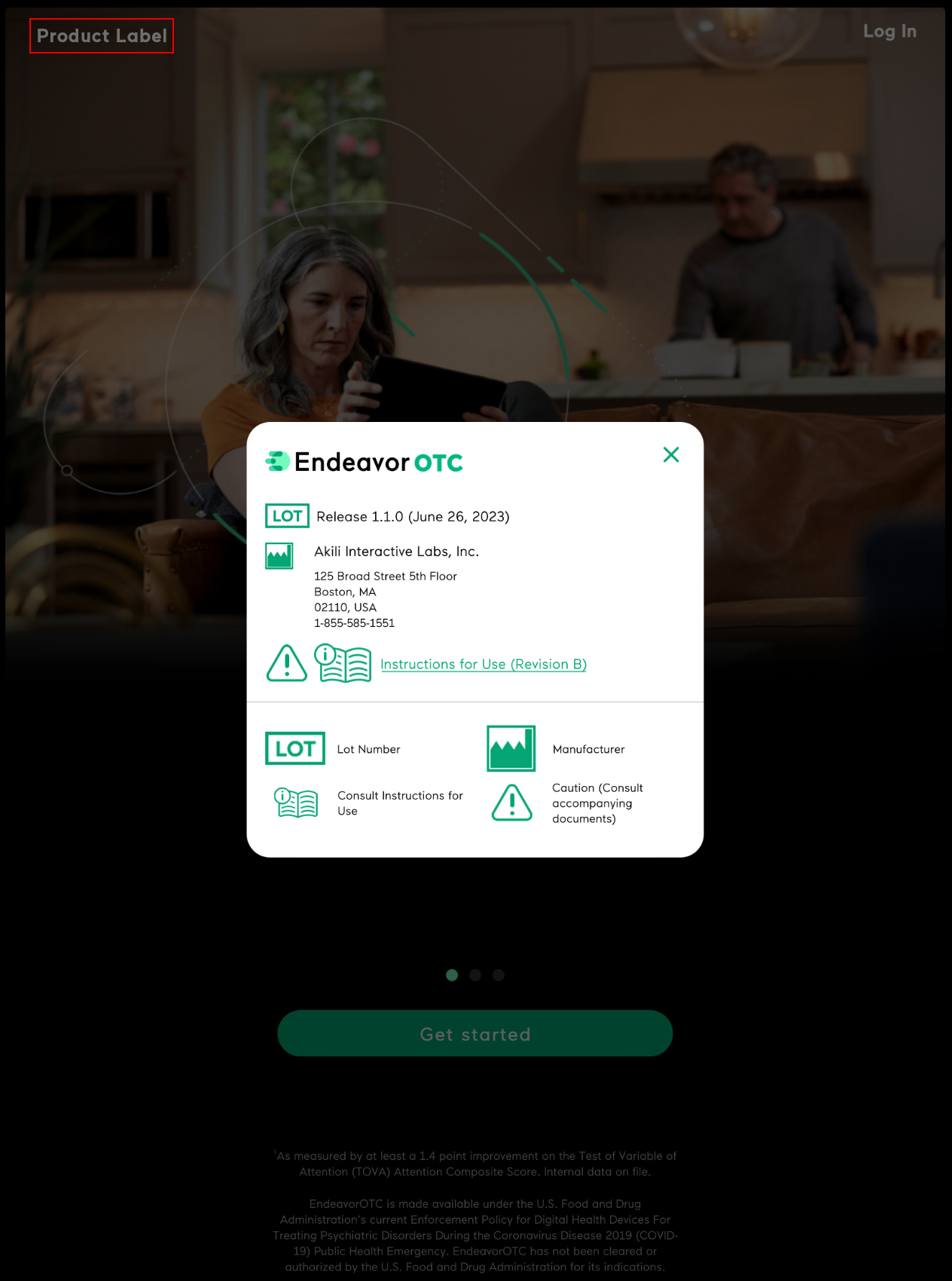STARS-ADHD Adolescent
The STARS-ADHD Adolescent study used to generate data to support AKL-T01* enrolled 162 adolescents ages 13-17 with ADHD for a four week treatment period.
Study Design
An open label single arm 4 week trial of AKL-T01 in adolescents ages 13-17 with ADHD (either on or off ADHD medication) with a TOVA ACS baseline score ≤ -1.8. The 162 participants were asked to engage with the treatment for approximately 25 minutes per day, 5 days per week, for 6 weeks.
Objectives
The primary endpoint was mean change in TOVA ACS from pre- to post-intervention (baseline to 6 weeks). Secondary endpoints were mean changes in ADHD-RS (Total score and Inattentive subscore) Exploratory endpoints were ADHD-related impairment and TOVA results other than the API.
Results
AKL-T01 demonstrated a statistically significant improvement in the TOVA ACS of sustained and selective attention from baseline after one month of treatment (p<0.0001), the study’s predefined primary efficacy outcome. Nearly two-thirds (66%) of adolescents met the prespecified definition of clinical response on the TOVA-ACS and nearly a quarter (24.7%) moved into the non-clinical, or normative, range. Following treatment, participants in the study showed significant improvement on both the inattention subscale and total score of the ADHD-RS (p<0.0001 for both). A prespecified responder analysis also showed that 27.1% of all participants in the study demonstrated at least a 30% reduction in total scores on the ADHD-RS, a finding similar to the STARS-ADHD trial in children with ADHD (24%). Statistically significant improvements were also observed for parent and child ratings of attention improvement, as well as parent ratings of function across a number of domains, including peer relationships, academic functioning, behavioral functioning, homework functioning, and self-esteem.
Safety and Compliance
Overall, 4 (2.5%) participants experienced a treatment-emergent adverse device event (3 decreased frustration tolerance, 1 headache; all mild or moderate). There were no serious adverse device events.
Mercaldi C, Suh M, Childress A, Higgins N, Kollins S. A Single Arm Pivotal Trial to Assess the Efficacy of AKL-T01, a Novel Intervention Designed to Improve Attention, in Adolescents diagnosed with Attention Deficit Hyperactive Disorder (ADHD). Poster presented at: American Society for Clinical Psychopharmacology Annual Meeting; May 31, 2023; Miami, FL.
*EndeavorOTC was previously known as AKL-T01 during the clinical investigations.
